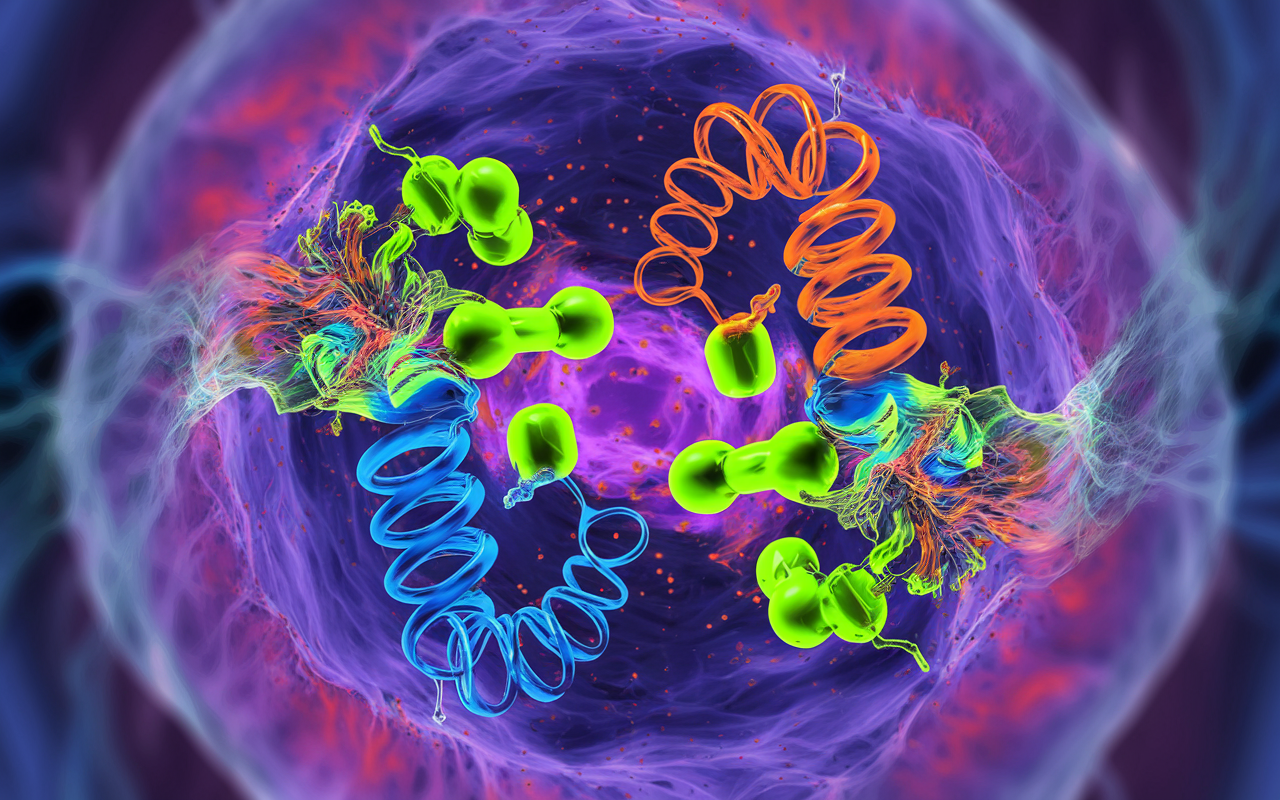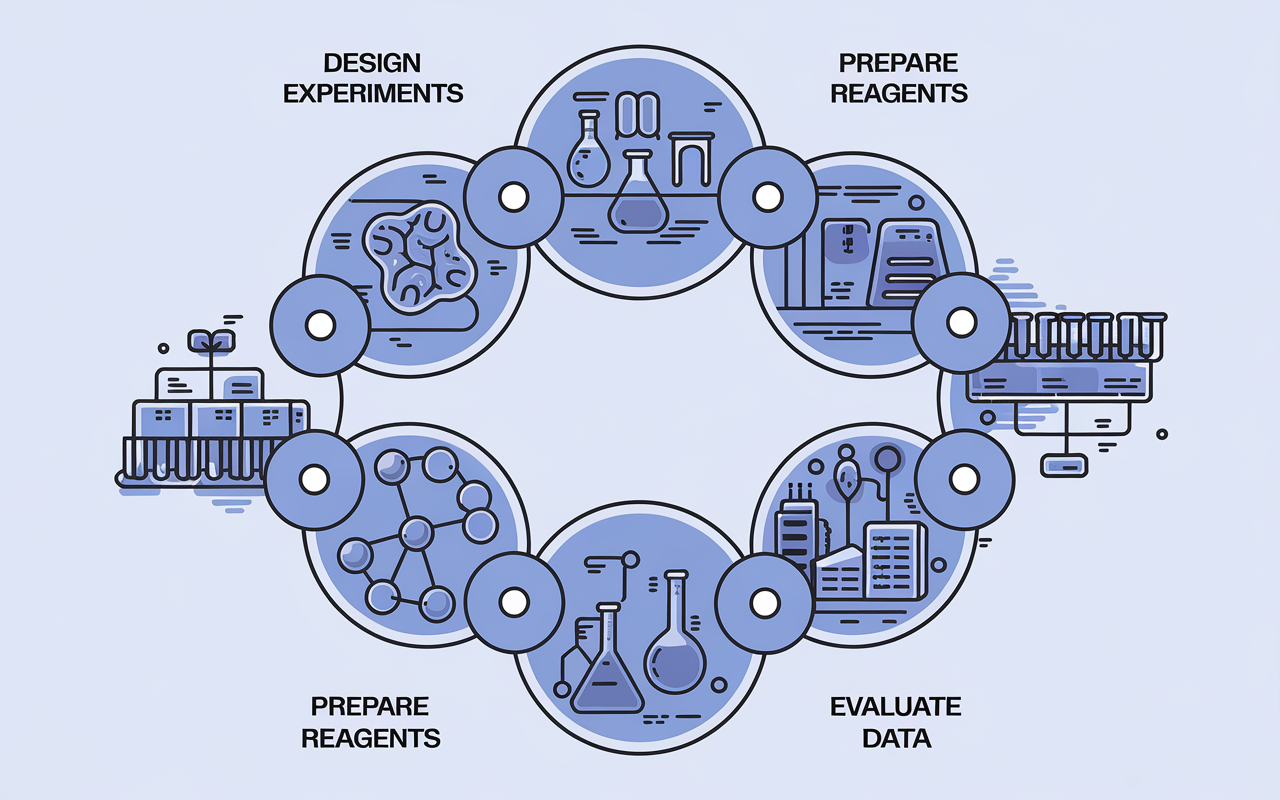Welcome, BioPharmaPulse Readers
Cancer remains one of humanity's most formidable challenges, touching countless lives across the globe. Today, we're exploring groundbreaking advancements that not only promise new hope but also redefine what's possible in cancer treatment. From innovative drug designs targeting 'twin' proteins to natural compounds offering new therapeutic avenues, this issue delves into the science that's shaping the future of oncology.
What's in this issue:
- 🔬 Discover how scientists are designing drugs to target 'twin' cancer proteins.
- 🌿 Learn how peptides in violets might aid in fighting glioblastoma.
- 🧪 Uncover the 7 essential steps for effective viral vector testing strategies.
- 💡 Explore best practices for developing safety profiles in rare disease trials.
Inspiration of the Day
"The art of medicine consists of amusing the patient while nature cures the disease." – Voltaire
Latest News and Developments
🔬 Designing Drugs that Target "Twin" Cancer Proteins (2 minute read)

Rundown: Scientists have made a significant breakthrough in cancer treatment by designing drugs that target 'twin' or paralog proteins. When a cancer-related protein lacks a clear drug-binding site, its functionally similar 'twin' can provide vital clues for drug development. This innovative approach opens new avenues for tackling previously 'undruggable' cancer targets.
Key Points
- 🧬 Paralog proteins can be alternative targets when primary proteins are difficult to inhibit.
- 🛠️ Novel drug designs leverage structural similarities between protein twins.
- 🎯 This strategy enhances the precision of cancer therapeutics.
- 🌐 Could potentially expand treatment options for various cancer types.
Why it matters: By exploring 'twin' proteins, researchers can develop effective drugs against cancers that have been challenging to treat. This advancement not only broadens our understanding of protein dynamics in cancer but also accelerates the development of targeted therapies, offering hope to patients with limited treatment options.
🌿 Circular Peptides in Violets May Aid in the Fight Against Glioblastoma (2 minute read)

Rundown: Glioblastoma, one of the most aggressive brain cancers, has defied effective treatment for years. Scientists at Brain Chemistry Labs are studying molecules found in violets, specifically circular peptides, which show promise in combating this deadly disease. These natural compounds could lead to new therapies that improve survival rates for patients.
Key Points
- 🌸 Violets contain unique circular peptides with potential anti-cancer properties.
- 🧪 Research indicates these peptides may inhibit glioblastoma cell growth.
- ⚗️ Offers a novel, natural approach to cancer drug development.
- 🧠 Could enhance treatment options for brain cancer patients.
Why it matters: With survival rates for glioblastoma remaining dismally low, innovative treatments are urgently needed. Harnessing the power of natural compounds like those found in violets could revolutionize how we approach brain cancer therapy, providing new hope for patients and their families.
🧪 An Effective Analytical Testing Strategy for Viral Vectors Should Include These 7 Steps (3 minute read)

Rundown: As the gene therapy market rapidly grows, the importance of robust analytical testing for viral vectors cannot be overstated. Michael Born from MilliporeSigma outlines a seven-step strategy to ensure the safety, efficacy, and quality of viral vector therapeutics, critical components in gene therapy development.
Key Points
- 📝 Understanding identification and characterization data is crucial.
- 🔬 Validating methods during preclinical development ensures reliability.
- 🚀 Establishing robust clinical development and manufacturing processes.
- 📊 Ongoing quality control and post-marketing surveillance are essential.
Why it matters: Gene therapies hold the potential to treat or even cure genetic diseases, but their success hinges on meticulous development processes. This comprehensive strategy aids biopharmaceutical companies in navigating regulatory requirements and delivering high-quality therapies to patients in need.
Question of the Day
🤔 How do you think natural compounds will influence future cancer treatments?
- 🌿 They will play a major role
- 🧪 They will complement existing therapies
- 🤷 Their impact will be minimal
Trending
🧠 BlueRock Therapeutics' Investigational Cell Therapy Bemdaneprocel for Parkinson's Disease Shows Positive Data at 24 Months
- Promising long-term results from a novel cell therapy offer hope for Parkinson's patients.
💊 Aldeyra Therapeutics Resubmits Reproxalap New Drug Application for the Treatment of Dry Eye Disease
- Aldeyra moves closer to providing relief for millions suffering from dry eye disease with their resubmitted NDA.
🩺 Calquence Granted Priority Review in the US for Patients with Untreated Mantle Cell Lymphoma
- AstraZeneca's Calquence could soon offer a new first-line treatment option for mantle cell lymphoma.
Industry Insight
📈 Best Practices for Developing Safety Profiles in Rare Disease Trials
Ensuring long-term patient safety is paramount when developing drugs for rare diseases, which often involve limited patient populations and complex genetic factors. Traditional trial designs may not suffice, necessitating innovative strategies to gather meaningful data.
By adopting tailored risk management strategies, leveraging real-world evidence, and engaging in early collaboration with regulators, biopharmaceutical companies can navigate these challenges effectively. A patient-centric approach, robust monitoring protocols, and ethical considerations are essential components of a successful program.
By prioritizing patient safety through these practices, companies enhance the drug development process, ultimately bringing vital treatment options to those with unmet medical needs.
Quick Hits
🧬 Elevar Therapeutics Resubmits New Drug Application to FDA for Combination Therapy in Liver Cancer (1 minute read)
- Elevar Therapeutics aims to provide a new first-line treatment option for unresectable hepatocellular carcinoma.
💡 Opinion: A Global Revolution in Funding Mental Health Care is Coming (4 minute read)
- Exploring innovative financing to bridge the mental health treatment gap worldwide.
🍽️ One in Three Americans Has a Dysfunctional Metabolism, but Intermittent Fasting Could Help (1 minute read)
- New clinical trial shows time-restricted eating offers significant health benefits.
🌐 12 People Changing the Course of the Chinese Biopharma Industry (1 minute read)
- Meet the innovators accelerating China's biotechnology growth.
Wrap Up
Thank you for joining us on this exploration of the latest breakthroughs in biopharmaceutical innovation. It's an exciting time in our field, with each discovery bringing us one step closer to transformative treatments. If you found this issue insightful, please share it with colleagues and friends who share our passion for advancing healthcare.
Until next time, stay curious and keep pushing the boundaries of what's possible.
Warm regards,
Elliot Reeves | BioPharmaPulse
😊 How did you like today's email?
- 😍 Loved it
- 🙂 It was OK
- 😕 Could be better
